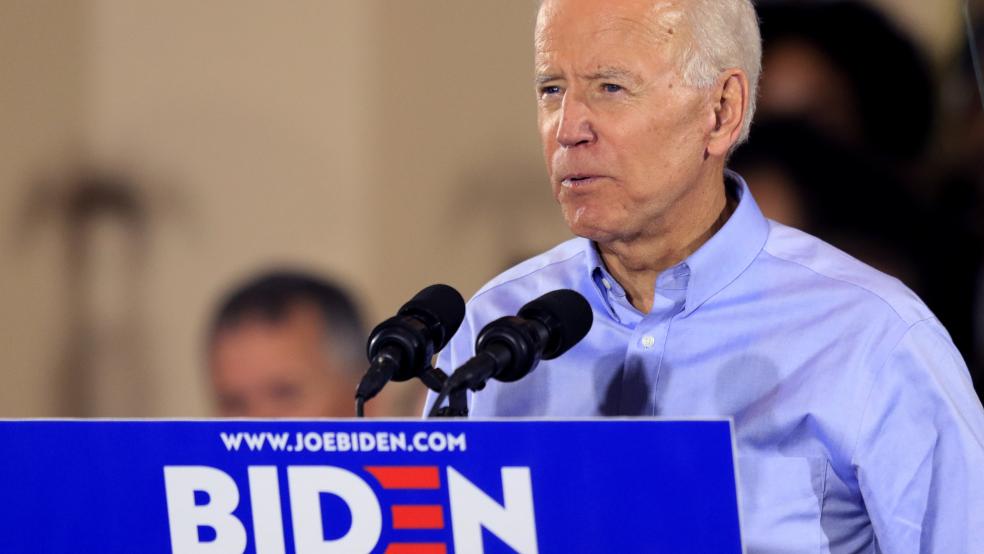Democratic presidential candidate Joe Biden took aim Thursday at the way companies pay taxes in the U.S., citing Amazon as an exemplar of a deeply flawed system that allows billion-dollar companies to pay little or nothing in federal income taxes.
“I have nothing against Amazon, but no company pulling in billions of dollars of profits should pay a lower tax rate than firefighters and teachers,” Biden tweeted. “We need to reward work, not just wealth.”
Amazon has been aggressive in pushing back against criticisms of its tax payments, and it quickly replied to Biden, saying that it invests heavily in the U.S., pays all the taxes it owes and assumes that the former vice president’s complaint is really about the tax code and not the company itself.
Is Biden right? Biden cited data from a recent study by the left-leaning Institute on Taxation and Economic Policy that showed that at least 60 large U.S. companies paid no taxes last year, a large increase over the year before that appears to be driven by the 2017 Republican tax overhaul, which lowered the corporate tax rate while providing new write-offs for business investments.
The Wall Street Journal’s Richard Rubin took another look at the numbers on Friday, concluding that we can’t know for sure what the company’s tax rate was in 2018 since its returns are private, but the available data suggests that the tech giant had a tax rate of about 8% over a longer period of time, between 2012 and 2018 — not zero, but low nevertheless. The low rate was likely due to high levels of investment and write-offs for employee stock grants, Rubin said, which the company used to lower its tax burden.
So what’s the problem? CNBC’s Ylan Mui argued Friday that the spat “perfectly sums up the battle over America’s new tax code.” While the Tax Cuts and Jobs Act was supposed to supercharge the economy via big cuts and new incentives — and, according to Republicans, pay for the lost revenue through faster growth and the return of earnings from overseas — “that scenario has yet to materialize,” Mui said. GDP growth has been better than expected, but only marginally so, and it’s come at the price of soaring budget deficits and worse-than-projected shortfalls in corporate tax revenues (see below).
“Well that’s what happens when you cut the rate by 40%,” the Tax Policy Center’s William Gale told Mui. “You would need heroic growth to make up the difference.”
Inviting a Democratic challenge. The big drop in corporate tax receipts could be “giant headache for Republicans” in the 2020 election, Mui said, opening the door for Democratic politicians to use the GOP tax law and the companies that benefited from it as “political punching bags” in the months ahead.




